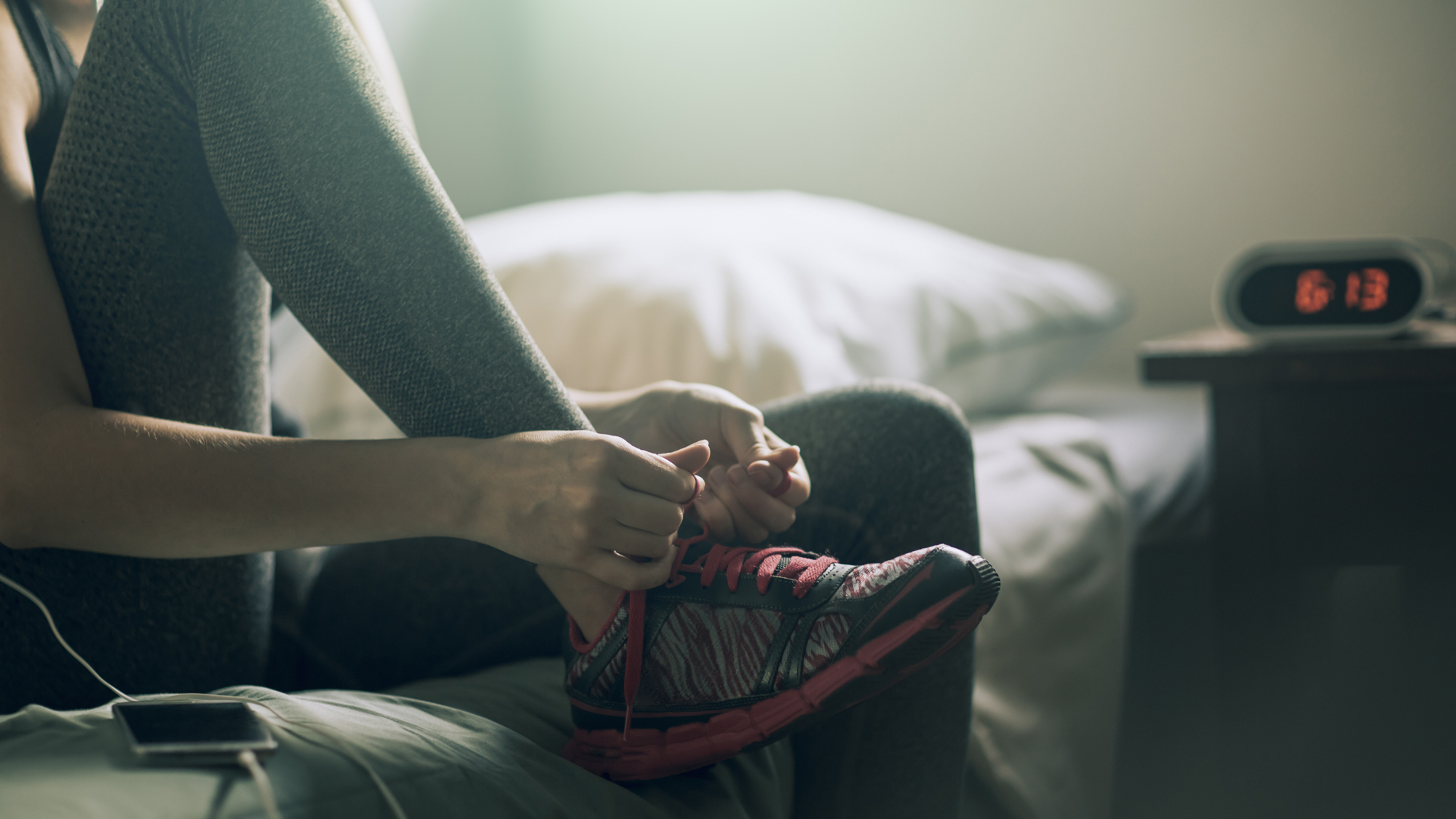Exercising in the morning makes you sleep worse, according to new research
Switching to evening workouts could net you an extra 30 minutes of shuteye


Start your week with achievable workout ideas, health tips and wellbeing advice in your inbox.
You are now subscribed
Your newsletter sign-up was successful
If you want to make exercising a habit, scheduling your training makes it easier to turn it into a regular practice. You might already have a preference for the time of day, but new research has found that early-morning training can negatively impact your sleep.
Waking up to fit in a pre-work session can be a challenge, especially during the darker winter months, which is why many of us invest in the best sunrise alarm clocks for an effective but gentle start to the day.
However, rising at this time to begin your day with some physical activity might be costing you 10 minutes of sleep each night, according to new research published in the journal Nutrients.
Interestingly, the team wasn't specifically looking at the impact of morning exercise on sleep. Instead, they wanted to explore the effect training in the morning or evening has on your overall energy levels, including how much you burn and what you eat.
However, they found that both exercise groups lost similar amounts of weight and ate almost the same amount of calories, a measure of energy intake. The differences were so slight that the team noticed just a 21-calorie reduction in the afternoon group.
While analyzing the data gathered throughout the 15-week study, the authors discovered that participants in the morning exercise group slept 10 minutes less than they had before.

This contrasts with the evening exercisers, who typically got an extra 30 minutes of sleep each day. The researchers noted that this is because those in the morning group "appeared to sleep earlier at night, but also woke up earlier to engage in exercise."
Start your week with achievable workout ideas, health tips and wellbeing advice in your inbox.
Meanwhile, those training later in the day "appeared to sleep earlier at night and wake up later during the exercise intervention." Although these findings seemed to have little impact on the results here, sleep plays a vital role in our post-workout recovery.
This trial only lasted 15 weeks, just under four months, but long-term changes to your sleep can have a substantial effect. For instance, some research has found that getting a good night's sleep reduces the risk of cardiac stress during exercise.
But this downtime is also when our bodies repair themselves. The results of this latest study suggest that exercising in the evening gives you the best chance at effective recovery and better performance in your next training session.
However, although you can optimize your activity using these findings, ultimately, some exercise is better than none. If you only have time in the morning, then it's still worth sticking to your schedule.
Plus, knowing that it may impact your sleep, you can wear one of the best fitness trackers to keep tabs on your shuteye. If you're finding that exercising first thing means you have less sleep, you can adjust your routine so that you head to bed earlier instead.

James is a London-based journalist and Fitness Editor at Fit&Well. He has over five years experience in fitness tech, including time spent as the Buyer’s Guide Editor and Staff Writer at technology publication MakeUseOf. In 2014 he was diagnosed with a chronic health condition, which spurred his interest in health, fitness, and lifestyle management.
In the years since, he has become a devoted meditator, experimented with workout styles and exercises, and used various gadgets to monitor his health. In recent times, James has been absorbed by the intersection between mental health, fitness, sustainability, and environmentalism. When not concerning himself with health and technology, James can be found excitedly checking out each week’s New Music Friday releases.